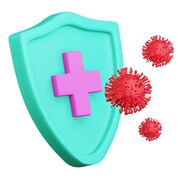 It’s that time of year between Christmas and New Year (Chrimbo Limbo), where many people feel a little bit lost and don’t know what to do… 😔 Bloated after weeks of over indulgence. 🥱 Tired and lethargic after too much alcohol. 🤔 Ran out of things to watch on Netflix. 😕 Confused with what day it is. On one hand you need to finish off the leftover turkey, work your way through the mounds of cheese you bought too much of, and scoff the toffee pennies that no-one wants. But on the other hand, you can’t wait for the New Year to begin so you can wipe the slate clean, get back into a routine and start feeling fit and healthy again! When January does arrive it’s important that you have a plan for your health and fitness, otherwise you’ll end up back at square one very quickly. It’s best to focus on small daily habits that you can maintain over time, rather than changing your whole life overnight. That’s what we do in our 14-Day New Year Shred Programme... We set our members some very simple daily tasks that get quick results to start with (which boosts motivation), but at the same time, are very easy to maintain so that you form new healthy habits in the long run. During the 14-day online programme you can expect to eliminate sugar cravings, lose weight, feel less bloated, feel fitter, more energetic and happier, with a new positive mindset. All that you have to do is perform these four simple daily tasks: 💧 Drink 2 litres of water 🏃♂️ Get 10,000 steps 🏋️♂️ Workout for 10 minutes (yes, just 10 minutes) 🍏 Track your calories It’s that simple! When you’re consistent with these tasks all of the other things start to fall into place. With the help and support from us and all of the other members taking part you’ll feel motivated and energised in no time! If you’d like to know more about the programme go to www.eastcoast-fitness.com/14dayshred The next course starts on Monday 9th January, with an early bird offer for everyone who signs up before 1st January. Here’s what some of our previous 14-Day Shred participants had to say… “𝘿𝙚𝙡𝙞𝙜𝙝𝙩𝙚𝙙 𝙬𝙞𝙩𝙝 𝙢𝙮 𝙛𝙞𝙣𝙖𝙡 𝙧𝙚𝙨𝙪𝙡𝙩𝙨 𝙛𝙧𝙤𝙢 𝙩𝙝𝙚 𝙎𝙝𝙧𝙚𝙙. 9.4𝙡𝙗𝙨 𝙤𝙛𝙛 𝙞𝙣 𝙬𝙚𝙞𝙜𝙝𝙩, 2.5” 𝙤𝙛𝙛 𝙢𝙮 𝙬𝙖𝙞𝙨𝙩 𝙖𝙣𝙙 2”𝙤𝙛𝙛 𝙢𝙮 𝙩𝙝𝙞𝙜𝙝𝙨. 𝘼 𝙗𝙧𝙞𝙡𝙡𝙞𝙖𝙣𝙩 𝙠𝙞𝙘𝙠𝙨𝙩𝙖𝙧𝙩 𝙬𝙝𝙞𝙘𝙝 𝙄 𝙨𝙤𝙧𝙚𝙡𝙮 𝙣𝙚𝙚𝙙𝙚𝙙.” - Mark B. “𝙍𝙚𝙖𝙡𝙡𝙮 𝙚𝙣𝙟𝙤𝙮𝙚𝙙 𝙩𝙝𝙚 𝙎𝙝𝙧𝙚𝙙… 𝙨𝙤𝙢𝙚 𝙡𝙤𝙫𝙚𝙡𝙮 𝙢𝙚𝙖𝙡𝙨… 𝙜𝙧𝙚𝙖𝙩 𝙬𝙤𝙧𝙠𝙤𝙪𝙩𝙨.. 𝙖𝙣𝙙 𝙗𝙚𝙨𝙩 𝙤𝙛 𝙖𝙡𝙡 𝙩𝙝𝙚 𝙨𝙪𝙥𝙥𝙤𝙧𝙩 𝙖𝙣𝙙 𝙗𝙖𝙣𝙩𝙚𝙧 𝙞𝙣 𝙩𝙝𝙚 𝙜𝙧𝙤𝙪𝙥. 𝙇𝙤𝙨𝙩 7𝙡𝙗𝙨, 𝙡𝙤𝙨𝙩 3.5 𝙞𝙣𝙘𝙝𝙚𝙨 𝙤𝙛𝙛 𝙬𝙖𝙞𝙨𝙩, 𝙖𝙣𝙙 𝙈𝙍𝙨 𝙎 𝙨𝙖𝙮𝙨 𝙄 𝙡𝙤𝙤𝙠 𝙖 𝙗𝙞𝙩 𝙛𝙞𝙩𝙩𝙚𝙧 𝙩𝙝𝙖𝙩’𝙨 𝙜𝙤𝙤𝙙 𝙚𝙣𝙤𝙪𝙜𝙝 𝙛𝙤𝙧 𝙢𝙚!” - Mark S. “𝙅𝙪𝙨𝙩 𝙘𝙝𝙚𝙘𝙠𝙚𝙙 𝙢𝙮 𝙢𝙚𝙖𝙨𝙪𝙧𝙚𝙢𝙚𝙣𝙩𝙨 6𝙡𝙗𝙨 𝙡𝙤𝙨𝙩, 𝙖𝙣 𝙞𝙣𝙘𝙝 𝙤𝙛𝙛 𝙢𝙮 𝙬𝙖𝙞𝙨𝙩. 𝙑𝙚𝙧𝙮 𝙝𝙖𝙥𝙥𝙮 𝙗𝙪𝙩 𝙩𝙝𝙞𝙨 𝙞𝙨 𝙟𝙪𝙨𝙩 𝙖 𝙨𝙩𝙖𝙧𝙩 𝙛𝙤𝙧 𝙢𝙚, 𝙄’𝙢 𝙜𝙤𝙞𝙣𝙜 𝙩𝙤 𝙠𝙚𝙚𝙥 𝙩𝙝𝙞𝙨 𝙜𝙤𝙞𝙣𝙜 𝙪𝙣𝙩𝙞𝙡 𝙄 𝙝𝙖𝙫𝙚 𝙧𝙚𝙖𝙘𝙝𝙚𝙙 𝙢𝙮 𝙜𝙤𝙖𝙡.” - Helen C.
0 Comments
 Christmas Day is the day most people write off any kind of dietary limitation and overindulge on festive treats. Me included! Mimosas at breakfast, mid-morning mince pies, the big Christmas dinner followed by Christmas pudding, afternoon Quality Street and mulled wine, a turkey sandwich and - why not? - a slice of stollen cake and a glass of Baileys before bed. We all know that we overindulge on Christmas Day, but a study by Wren Kitchens revealed the extent of the damage - the average person consumes a massive 5,323 calories on 25th December. That’s nearly three times the recommended daily allowance for women and twice the recommended daily allowance for men… or the equivalent of 10 big macs. Now, I’m not going to suggest that you cut out carbs or count calories on Christmas Day because that would be hypocritical. I’m going to be enjoying the festive treats just as much as anyone else. But, I would recommend that you follow these five tips to limit the damage…  Hangovers are the worst! Caused by excessive drinking, there’s no cure for a hangover but there are things you can do to avoid one. So, with many people heading out to Christmas parties with friends and work colleagues over the next couple of weeks here’s 8 simple tips to help you avoid that dreadful hangover feeling:  Christmas is a time for family, a time for togetherness and celebrating being with the people you love, but that doesn't mean you shouldn't MAKE TIME FOR YOURSELF. While finding time to focus on yourself in December might be difficult, it’s just as important as taking care of yourself throughout the rest of the year. In fact, with Christmas shopping, wrapping, cooking and all of the other stresses, I'd say it's even more important! But, A LOT of people put their fitness & health on the back burner this time of year. “I’ll start again after the New Year,” they say. It’s not just about controlling your weight … it’s about how you feel in your body– physically and mentally! When you stick with your healthy habits you just simply FEEL better. You have fewer cravings … your immune system works better … you are in a better mood … your self-esteem goes up … and you enjoy life more! And I can’t think of a better gift to yourself (and your loved ones!) for Christmas than that. So, here are 4 simple healthy habits you can do every day to help your physical and mental health over Christmas: I love Christmas time! For me, it’s a time of year when I relax a little bit and enjoy the festivities. There’s lot to look forward to! Meeting with friends and family… Soaking up the atmosphere at Christmas markets with mulled wine and hot cider... Christmas dinner…Boxing day leftovers… We’ve also got our East Coast Fitness Christmas party coming up and we’ll be having a few beers with our members to celebrate everyones success this year. I think it’s really important to enjoy this time of year, but if you want to stay fit and healthy over Christmas there has to be a limit to how much partying and over-indulging you do. You have to have a good BALANCE between enjoying the festivities and being healthy. And some self-control so that December doesn’t turn into a full month of over eating and inactivity, because that will do your health no good at all! Here’s some of my tips for getting the right balance, so that you don’t put too much weight on over Christmas.  Can you believe Christmas is on the horizon?! Since this is the time of year that most people's goals take a back seat … I’ve got a mini checklist to help you STAY ON TRACK so you don’t feel like you need to start all over again on 1st Jan. Your mission: feeling ahead of all your goals when 2023 comes around! These 6 simple steps (that you can start doing RIGHT NOW) go a long way toward keeping your momentum up. And even better: you’ll feel AMAZING along the way.  Are you struggling to maintain the exercise routine you managed to perfect in the summer months? You're not alone! Getting yourself into the gym or heading out for a run on cold dark mornings and evenings takes a lot more motivation than it might do in July. Here’s 5 of my top tips to help you stay in shape now the temperature has dropped and the days are shorter:
 I’ve got a big confession for you today … and yes, this happens to coaches/personal trainers, too. The other day I was NOT FEELING my workout. In fact, I was dreading it. The plan was to go for a run after I had taken my son, Max, to football training. It was windy, dark and cold. I kept making all sorts of EXCUSES not to work out. It wasn’t because I needed a day off. It was just one of those days. So here’s what I did … I put on my workout clothes and laced up my running trainers so that when the football training was finished I was ready to go... I told myself: “Just go easy for 10 minutes, and if you still don’t want to run, then just walk the rest of the way.” And, you guessed it: after 10 minutes, I felt so much better I decided to keep going. Was it my best run ever? No. But it didn’t have to be. The important thing was that I showed up for myself. The workouts you don’t want to do are the MOST IMPORTANT. They solidify your commitment to yourself, your health, fitness, and your goals. They lay the groundwork. So the next time you are thinking of ditching your healthy habits … tell yourself: JUST 10 MINUTES. PS: If you’re ready to start showing up for yourself and get an extra boost of accountability from me and our brilliant members, take a minute to see what’s included in my programmes before spots fill up.. www.eastcoast-fitness.com The other day I met with a client who was so frustrated because it felt like everything in her life was working against her goals.
She has a demanding job … her family life is hectic … AND she is taking on some new responsibilities with her aging parents. "There is absolutely no time for ME," she told me. And you know what? She’s right. She has a LOADS on her plate. So, I suggested she make a mindset shift … and CUT HERSELF SOME SLACK. Which can be incredibly hard to do, especially if you’re demanding of yourself. It’s not about being "on" or "off" her health & fitness routine. Instead, it’s about doing the best you can RIGHT NOW! Over the long run, it’s your everyday habits that have the biggest impact on your health & fitness. Habits like: 🍏 Making healthy food choices 🚶♀️ Choosing activity when possible (walks, brief exercise sessions) 💧 Drinking 2 litres of water a day 💤 Getting 7-8 hours of sleep a night All of these actions will add MORE to your life. More energy (and less stress!) … and more vitality to take on each and every day, feeling strong and empowered. It’s also a great time to hire a personal trainer or coach. When you’re facing challenges, you NEED support, accountability, and a troubleshooter who can step back and see the big picture... … and help you come up with solutions that work with your schedule & goals. At East Coast Fitness we can help keep you on track when life gets crazy! It’s not about working longer or harder… it’s about working smarter. Our Personal Training programme is the complete package: support and accountability… quick workouts designed for results… and an easy-to-follow nutrition plan. It works WITH your life, not against it! For more details send us a message here. Graham 😄💪 |
AuthorWrite something about yourself. No need to be fancy, just an overview. Archives
December 2022
Categories |
Services |
Company |
|